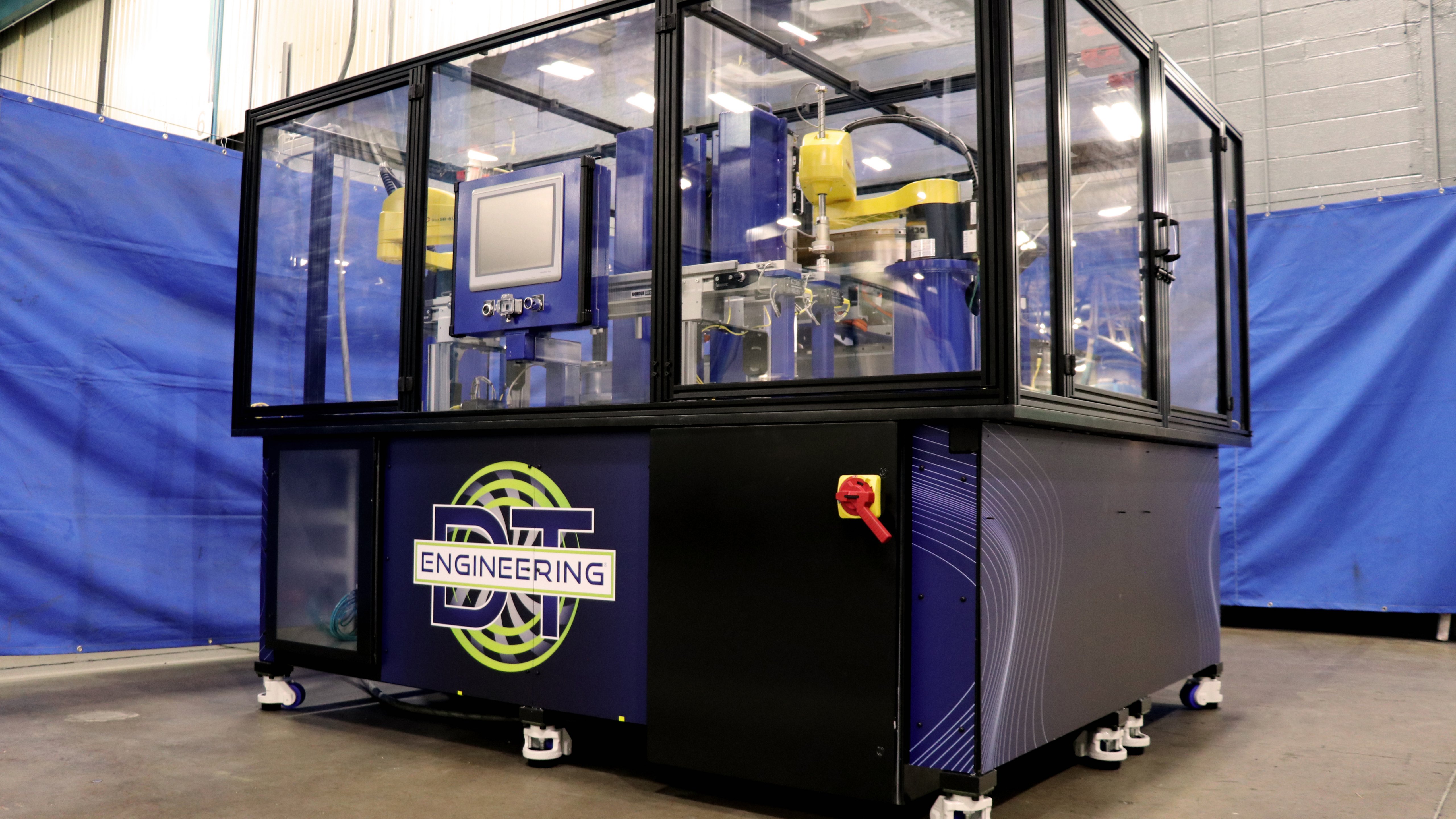“Mass customization” is a concept that has been around for decades. But with the advent of the Internet of Things (IoT) and more sophisticated automation technology, a flexible manufacturing environment that can efficiently address multiple SKUs and more personalized production is becoming a reality.
“Our customers are researching new and better ways to automate their processes,” said Mark Meckem, director of engineering and technology, DT Engineering. “We collaborate with customers and suppliers to offer solutions that adhere to cycle time, improve return on investment and address workforce challenges.”
DT Engineering is a family-owned, industrial automation developer and system integrator that prides itself on an innovative approach to project execution by Bringing Concepts to Life. Located in Lebanon, Missouri, DT Engineering serves leading appliance, HVAC, agricultural, tire, consumer product and pharmaceutical/medical device companies.
Conventional Conveyance Limits OEE
Since Overall Equipment Effectiveness (OEE) is critical to return on investment (ROI), OEE is a key performance indicator for most industries. Improvement in changeover time and equipment accuracy impact OEE, thereby improving ROI.
Conveyance is central to many industrial applications. And the method used oftentimes limits OEE improvements.
Conventional conveyors are designed to move products through a line on a preconfigured path – at a fixed speed. Products on the conveyor are equally spaced – and the system only runs as fast as the slowest process on the line.
“High-speed assembly and packaging applications involve transporting products with control and precision,” Meckem explained. “Old style line-shaft cam or belt-driven equipment has a high degree of accuracy but no flexibility. A system based on independent cart technology has both accuracy and flexibility, thereby reducing the capital expenditures for multiple SKUs.”
Recently, DT Engineering applied this new approach to improve machine speed and performance in a multi-application solution featuring Rockwell Automation independent cart technology (ICT).

